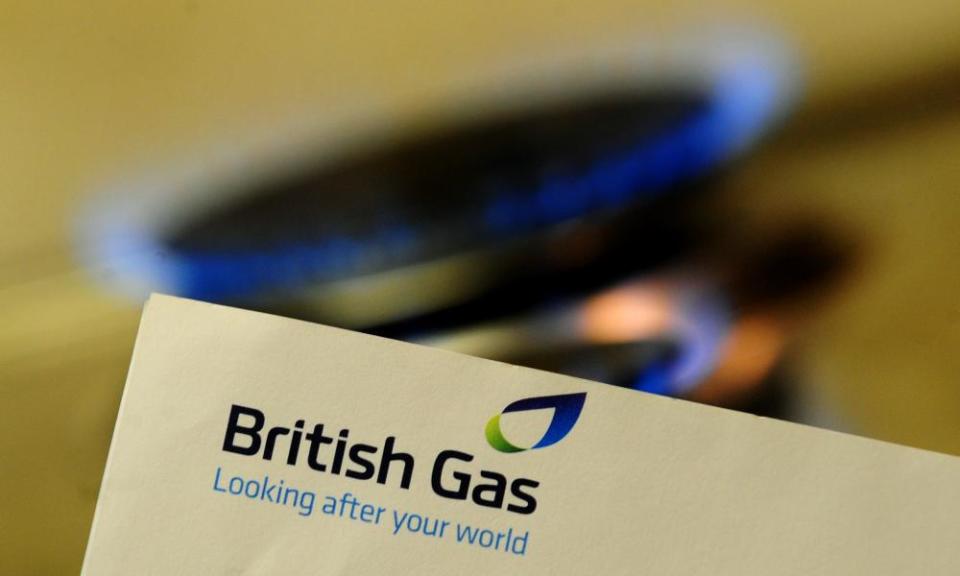Big six energy firms lose 163,000 customers as British Gas raises prices

The big six energy companies suffered a record exodus of more than 160,000 customers to smaller rivals in September, as British Gas increased electricity prices for millions of households.
A monthly all-time high of 163,000 people left the largest suppliers – British Gas, EDF, E.ON, Npower, SSE and ScottishPower – which have about 80% of the market.
The surge in customers ditching the big six comes as Theresa May reiterated her claim the market was broken and ministers published draft legislation to cap bills for up to five years.
Jefferies investment bank said 1.1 million customers had already switched this year from the big six to smaller competitors, up 18% on the same period last year.
The big six are likely to see their finances squeezed further by May’s cap and competition from challenger firms, the bank warned.
“Intense competition, combined with the recent announcement of a standard variable tariff price cap, is likely to only magnify UK retail market woes for the big six,” it said.
The industry trade body, Energy UK, hailed the switching figures as a sign that “competition continues to flourish”.
Much of the migration will have been spurred by British Gas hiking its electricity prices 12.5% for 3.1 million of its customers from 15 September. The company was the last of the big six to increase its tariffs, following a round of price rises at the start of the year.
Robert Buckley, research director at energy experts Cornwall Insight, said the statistics showed the market was working. “This just shows that the market is busier and more competitive than ever,” he said.
He agreed with Jefferies’ prediction that 2017 is likely to be a record year for switching. However, Buckley warned that May’s cap, expected to take effect in late 2018 or early 2019, could see the growth in switching stall as consumers are lulled into complacency over bills.
“I think there’s a real risk with any price cap that people who haven’t engaged with the market think that they’ll be OK not to,” he said.
Smaller suppliers such as Ovo and First Utility have been taking about one percentage point of market share every quarter for the last four years, and many of them have welcomed a price cap as their existing tariffs are already well below the level of any likely ceiling.
But there are fears in the industry that even the prospect of a cap could make consumers think they are protected and therefore stick with big suppliers.
Several of the big six have already reported large customer losses this year, with SSE shedding nearly 250,000 between March and June, and Scottish Power down by 100,000 in the first half of the year.
The chief executive of the UK’s biggest energy company, British Gas owner Centrica, this week questioned whether the cheap rates offered by some companies were sustainable.
“Many of the companies who have entered the market currently don’t make any money. One of the things that one needs to watch out for is, is the current market actually sustainable?” said Iain Conn, who has been a vocal critic of a price cap.
The managing director of Centrica’s domestic retail business will be questioned by MPs on Tuesday on the impact of a cap, along with the chief executive ofOvo and the head of the energy regulator, Ofgem.

 Yahoo Finance
Yahoo Finance 